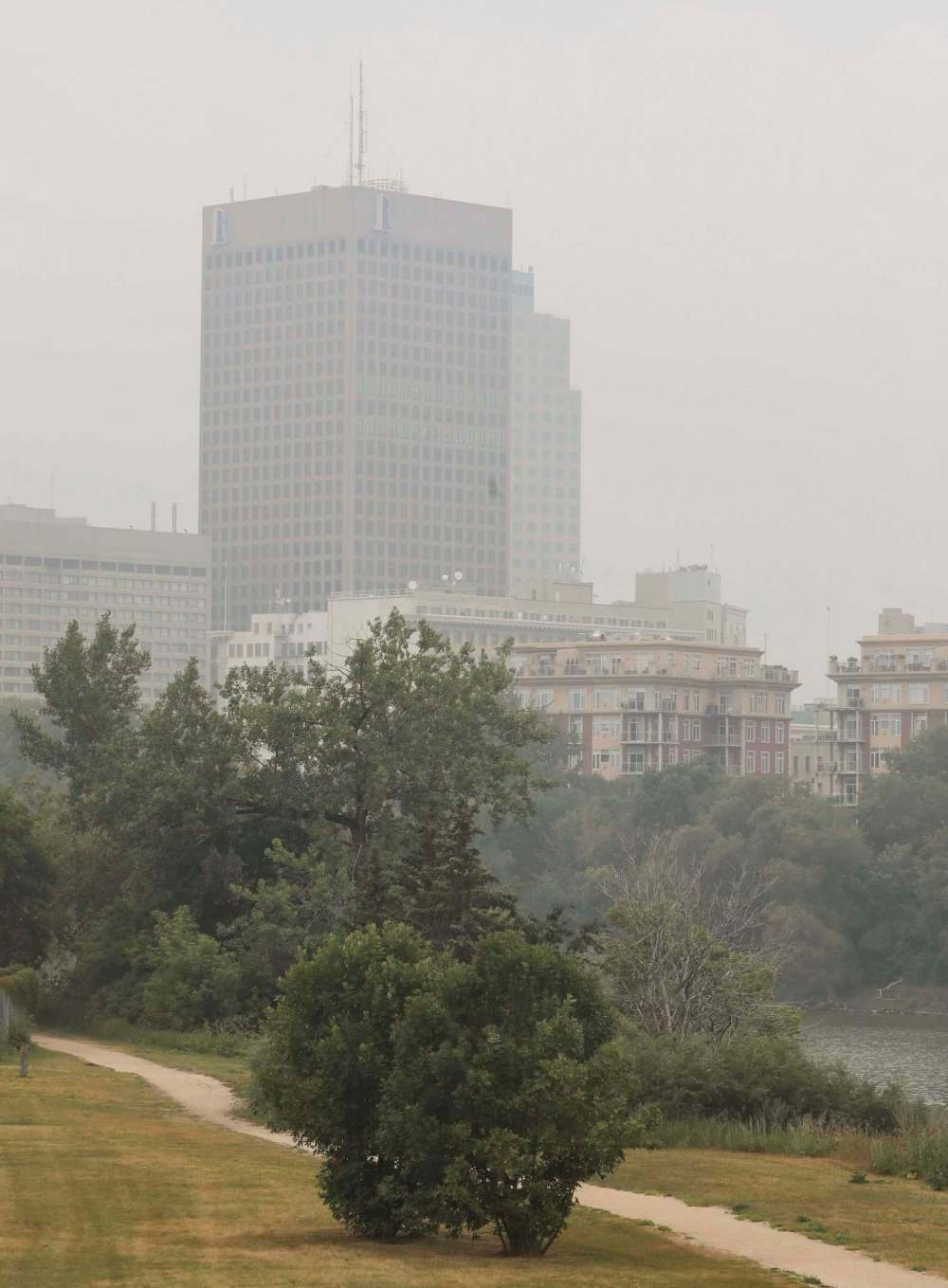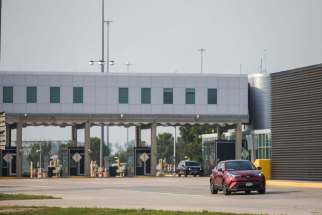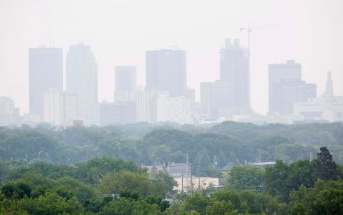IPCC report signals code red for planet Earth
Read this article for free:
or
Already have an account? Log in here »
To continue reading, please subscribe:
Monthly Digital Subscription
$0 for the first 4 weeks*
- Enjoy unlimited reading on winnipegfreepress.com
- Read the E-Edition, our digital replica newspaper
- Access News Break, our award-winning app
- Play interactive puzzles
*No charge for 4 weeks then price increases to the regular rate of $19.00 plus GST every four weeks. Offer available to new and qualified returning subscribers only. Cancel any time.
Monthly Digital Subscription
$4.75/week*
- Enjoy unlimited reading on winnipegfreepress.com
- Read the E-Edition, our digital replica newspaper
- Access News Break, our award-winning app
- Play interactive puzzles
*Billed as $19 plus GST every four weeks. Cancel any time.
To continue reading, please subscribe:
Add Free Press access to your Brandon Sun subscription for only an additional
$1 for the first 4 weeks*
*Your next subscription payment will increase by $1.00 and you will be charged $16.99 plus GST for four weeks. After four weeks, your payment will increase to $23.99 plus GST every four weeks.
Read unlimited articles for free today:
or
Already have an account? Log in here »
Hey there, time traveller!
This article was published 09/08/2021 (1583 days ago), so information in it may no longer be current.
Climate scientists advising the United Nations this week told the world what we already knew — that the long-predicted global warming is happening before our eyes with dramatic results in droughts, floods, melting polar ice and record high temperatures.
Any Manitoban who opens a window and smells the smoke of forest fires — week after blazing week — knows it’s true. Any Manitoban who notices stunted crops in parched fields can see a vision of our region’s future. We probably won’t have forest fires and crop failures on this scale every year. Burning of fossil fuels has, however, irreversibly increased the carbon dioxide content of Earth’s atmosphere, so it’s fairly certain years like this will become the new normal.
'Code red': UN scientists warn of worsening global warming

Posted:
BERLIN - Earth is getting so hot that temperatures in about a decade will probably blow past a level of warming that world leaders have sought to prevent, according to a report released Monday that the United Nations called a “code red for humanity.”
On Monday in Geneva, the scientists reporting to the Intergovernmental Panel on Climate Change presented their report on the most recent observations and experimental results. It provides new estimates of the likelihood we will exceed 1.5 Celsius degrees of global warming in the next decades. It finds that Earth’s inhabitants must make immediate large reductions in greenhouse gas (GHG) emissions or else face warming beyond 1.5 degrees – with catastrophic effects on the habitability of our planet.
Floods and droughts have become more intense and that effect will intensify, the scientists report. Coastal cities, already affected by increased flooding from rising sea levels, will see more of the same. Permafrost will continue to thaw. Glaciers will continue to disappear.
The cause of these changes was at one time obscure but is now reasonably clear: burning of coal, oil and gas in industrial societies has raised the carbon dioxide concentration of the entire atmosphere so Earth retains more of the sun’s heat. The solution, difficult to bring about, is also evident: industries and households must quit using coal, oil and natural gas and switch to hydro power, geothermal power, wind power and solar power.
Canadian governments have been mouthing these truths for years and doing nothing significant about them. As a result, Canadian greenhouse gas emissions continue to rise, in step with the rest of the world. Time is running out, the report warns in no uncertain terms.
It’s high time for Manitoba to open the window, smell the smoke and break the carbon habit.
Premier Brian Pallister and his government should by now have ordered the builders of houses, office towers and industrial buildings to cease putting gas-fired furnaces and water heaters in their buildings. The builders are entitled to know the exact date when the last carbon-fired heat source can be purchased.
Manitoba Hydro should by now be equipping Manitoba for the era of electric-powered road and farm vehicles. Motor manufacturers are well-along in developing electric-powered vehicles, but no one is going to buy one if they have no place to plug it in.

This week’s update from the IPCC is well-timed to pave the way to the Glasgow gathering of governments starting Oct. 31 bringing together signatories to the 2015 Paris agreement that set a goal of limiting global warming to 1.5 C.
Governments will have to agree on measures that will achieve that goal. Their record so far is unimpressive. Public pressure may, however, encourage them to step back from chronic procrastination and bring about actual cuts in GHG emissions.
Manitoba has plenty of wind, plenty of sunshine and plenty of hydro power. We even know how to dig holes in the ground to extract geothermal power. We are also huge consumers of energy because of our scattered population and the structure of our agriculture. It’s high time for Manitoba to open the window, smell the smoke and break the carbon habit.












